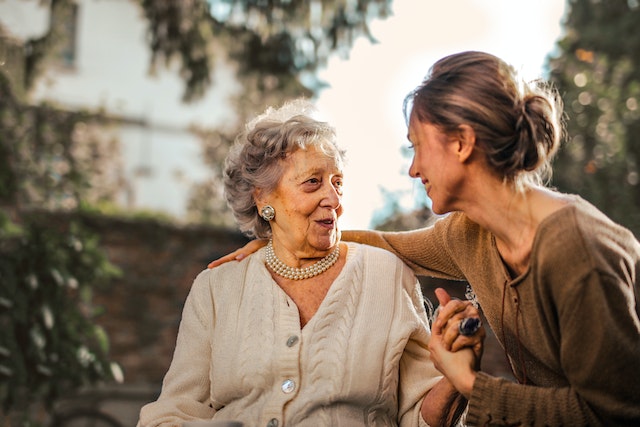Authored by: Ciaran Hourican, Photo by Pixabay
The topic of emotional intelligence (EI) has received widespread and ongoing attention since Daniel Goleman published a book on this concept in 1995. Nowadays, emotional intelligence has a positive impact on our well-being and is crucial in the process of healthy aging.
In this article, we explore why developing emotional intelligence is vital to increasing well-being as you age.
The basics of emotional intelligence
EI is the ability to understand and manage emotions instead of being overpowered by them.
This concept is used to describe interpersonal skills. However, EI is also valuable when it comes to understanding, evaluating, and managing your emotional states.
There are four main aspects involved in EI:
- Recognizing emotions: able to accurately perceive and label our emotions.
- Understanding emotions, or being able to perceive the purpose of emotions (why we feel the way we feel).
- Using emotions: able to adapt our mood to cope better with specific tasks or challenges.
- Emotion management: able to regulate emotional states and to discriminate between different levels of emotional expression.
How are these linked to the aging process?
The link between emotional intelligence and aging
The aging process is inevitable, but how we move through it and how it impacts our physical and emotional well-being varies from person to person.
For some, the thought of getting older triggers feelings of insecurity, uncertainty, and low self-esteem. Sadly, this is common in Western society, where negative stereotypes and attitudes towards aging are still prevalent.
These negative perceptions can make people more aware of the changes they’re experiencing in their physical or cognitive abilities and highlight their limitations. This can limit your quality of life and reduce your enjoyment of and appreciation for the present.
This is precisely the context where EI comes into play. Developing it can help you find internal balance and minimize the emotional and physical disruptions that often come with this life stage.
You will be taking steps toward a healthier and more fulfilling aging by consciously working on improving your EI abilities.
Tips for cultivating emotional intelligence as you age
Like other abilities, emotional intelligence development requires time, effort, and perseverance.
Here are some suggestions that can help you explore different avenues to cultivate emotional intelligence as you age:
Identify your current narrative
Whether consciously or not, we all tell ourselves stories about our lives. These stories or narratives can have an impact on how we perceive ourselves and our circumstances, and therefore on our emotional well-being.
Take a few moments to think about what story you’re telling yourself about getting older. Notice the connotations of this story. Can you perceive a negative undertone? How does this make you feel? Are there alternative narratives you could create?
Define personal goals
Once you embrace a positive narrative, think about what you want to achieve in this life stage. Maybe your priority is to stay physically active or to devote time to a hobby or interest that you set aside years ago.
It’s always a good idea to have several goals that reflect the richness and variety of life. Focusing on a single goal could make you feel limited and throw you off balance when challenges appear.
Also, make a note of which emotions help you achieve those goals and which interfere with or affect your motivation.
Keep track of your emotions
Keeping a diary of your emotions can help you become more aware of internal patterns that affect your emotional well-being.
As you become aware of your emotional ups and downs, you can write a letter of forgiveness to yourself or others. This can help build acceptance towards different emotions, which is part of EI.
Practice kindness
Irrespective of age, you can always show more kindness towards yourself and others. Simply recognizing that we’re not perfect (and neither are others) can lift a burden off your shoulders and help you be more appreciative of life.
When you create a daily space for kindness, you also become less judgmental, which helps you develop openness and gratitude towards life in all its manifestations, which can bring greater joy.
Conclusion
Consciously working towards greater EI contributes to healthier aging, as it promotes a better internal balance and an optimistic outlook towards yourself as you grow older. Try the tips in this article as a starting point towards healthier and more rewarding aging.
Author Bio: Ciaran Hourican is the Managing Director of H-Training, a career development company that helps professionals with career coaching and interview coaching. Emotional intelligence is part of his process, and he understands the major impact it can have on aging.











